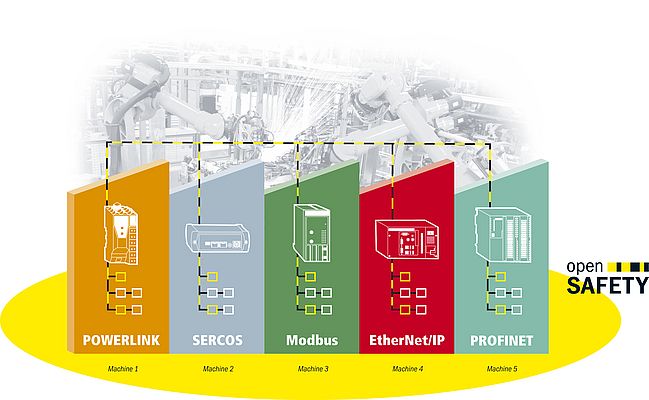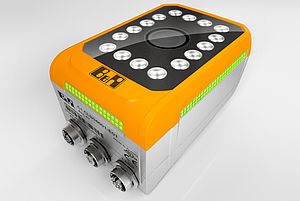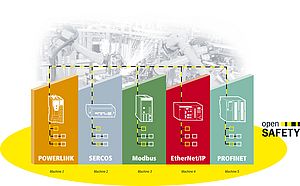The openSAFETY safety protocol is independent of the bus system and interoperable with all transport protocols. It enables an integrated safety standard for complete machine lines, regardless of the control system manufacturer and fieldbus system
Nestlé S.A. is a world-leading food and nutrition company. Founded and headquartered in Vevey, Switzerland, Nestlé originated in a 1905 merger of the Anglo-Swiss Milk Company, established in 1867, and Farine Lactée Henri Nestlé, founded in 1866. Today, the company operates in 86 countries around the world, and employs over 280,000 people. Nestlé has some 6,000 brands, with a wide range of products across a number of markets, including coffee, bottled water, milkshakes and other beverages, chocolate, ice cream, breakfast cereals, infant foods, performance and healthcare nutrition, seasonings, soups and sauces, frozen and refrigerated foods, confectionery, and pet food.
On the one hand, large international companies such as Nestlé rely on a flexible choice of machines from various manufacturers. On the other hand, most machine producers have chosen one specific automation platform, which means that users who install different machine types need to integrate different control systems and bus systems into one line.
Nestlé's most important automation suppliers include Siemens, Rockwell Automation, Schneider Electric and B&R, who use PROFINET, EtherNet/IP, SERCOS III and POWERLINK for their respective controllers. Currently, a Nestlé engineering team in Switzerland is preparing the pilot implementation of a packaging line in cooperation with these automation suppliers in order to develop manufacturer-independent standards for the integration of different control systems. The team is focusing on the use of open communication technologies.
Goals of the pilot implementation
The project has two key goals: firstly, creating a specification for packaging machines in accordance with the packaging machine language PackML. PackML is a guideline for open, modular automation architectures issued by the OMAC user group (Organization for Machine Automation and Control) whose state model stipulates an integrated administration of all operating modes in packaging machines. With that basis, the team will develop standard libraries for each control system and make them available to machine builders at the end of the project. Secondly, Nestlé will introduce an openSAFETY-based safety standard which is independent of the controller and bus system, and which allows for the unrestricted exchange of safety-related information between machines and control systems from various manufacturers.
openSAFETY
openSAFETY is a tried-and-tested safety protocol which has been certified for use in systems with a SIL 3 safety integrity level by TÜV Rheinland and TÜV Süd. High-performance safety solutions based on openSAFETY have been used in series production applications since 2008. The protocol is independent of the bus system and interoperable with all transport protocols thanks to the black channel principle. This means that any transport protocol can be used to transfer the safety-oriented data which is packed in a special frame format. For demonstration purposes, the POWERLINK user organization EPSG has already implemented openSAFETY for all communication systems used by Nestlé, i.e. PROFINET, SERCOS III, EtherNet/IP and POWERLINK, and additionally for Modbus TCP.
Bryan Griffen, Global Head of Electrical and Automation Engineering at Nestlé Corporate Engineering, explains openSAFETY's advantages: “Nestlé uses automation and safety components from various manufacturers. An integrated standard for safety communication allows for a reliable transfer of safety data within the complete plant, irrespective of the manufacturer of its components. Additionally, the standard also facilitates engineering with regard to system design, commissioning, and maintenance and diagnosis of the safety systems.”
Open safety standard
for packaging machines
- by Bernecker + Rainer Industrie-Elektronik
- October 7, 2011
- 292 views























